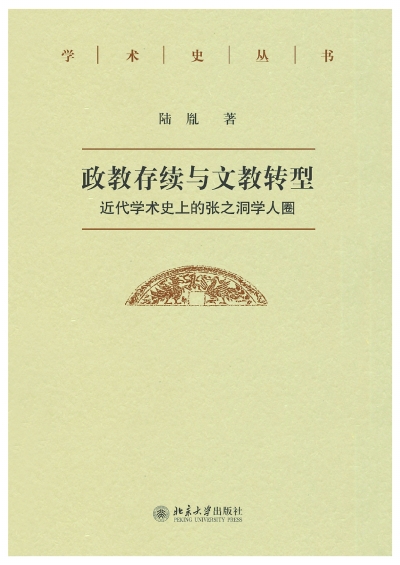Zhang Zhidong and the education transformation

Political Remnants in Education and Academic Transformation
Author: Lu Yin
Publisher: Peking University Press
In the annals of Chinese academic history, Zhang Zhidong is not an eminent figure. He was more defined as a politician than a scholar. In Chinese traditions, academics had close ties with politics, education and ethics. Pushed by modernization and ideas from the West, Chinese academics after the late Qing Dynasty became divorced from the conventional system in which politics and education relied on each other. It thus became a relatively independent field. Zhang Zhidong, the officer who was in charge of educational affairs at that time, played a significant role in promoting the transformation of Chinese academia.
In Political Remnants in Education and Academic Transformation, Lu Yin argues that the reform of the national schooling system in the late Qing Dynasty marked a turning point in the Chinese education system. It was a crucial point where a politically oriented education system transformed to one that served the people’s needs. In 1901, Zhang Zhidong brought forth his ideas about setting up a new schooling system in his memoranda sent to the Qing emperor and consequently, the Guichou schooling system based on the Japanese experience was implemented in 1904.
In fact, the origin of the new schooling system can be found in the Guangya (1887) and Lianghu (1890) academies of classical learning launched by Zhang when he was in charge of the official affairs in Guangdong, Guangxi, Hunan and Hubei provinces. At that time, many academies had introduced Western disciplines including technology, military system and commercial systems. The majority of educated people in China recognized the importance of Western knowledge in pursuing national prosperity, while the position of classical Chinese learning posed a new problem. Zhang launched the Guangya Academy in order to emphasize that administrative value lies in classical learning, anticipating that talented people could influence politics.
Zhang then established the Lianghu Academy in Wuchang, Hubei Province. Before long, the Sino-Japanese War of 1894-95 had broken out, which brought China into a more severe crisis. Western knowledge thus gained more importance, edging out classical learning. The major challenge facing China was not emphasizing Confucian ideals, but maintaining the role of Chinese classics in the schooling system. Enlightened by the Japanese experience, Zhang simplified the approach to traditional academics into a rudimentary “common sense” system when facing the public, thus leaving space for Western specialized knowledge.
After 1900, Zhang applied this experience to the design and implementation of the new national schooling systems. By now, traditional Chinese learning had confirmed its status as the rudimentary discipline that aimed for personal moral cultivation. Zhang’s practice made the inheritance and further development of classics feasible under the new schooling system, providing new chances for its modernization. Also, when traditional values were transferred into a knowledge base, academics and education gradually became a professionalized knowledge activity, which meant that education was no longer in charge of moral guidance. This was the precursor of modern academia, though it may not be what Zhang had expected.
